- What We Do
- Agriculture and Food Security
- Democracy, Human Rights and Governance
- Economic Growth and Trade
- Education
- Environment and Global Climate Change
- Gender Equality and Women's Empowerment
- Global Health
- Humanitarian Assistance
- Transformation at USAID
- Water and Sanitation
- Working in Crises and Conflict
- U.S. Global Development Lab
Digital Development Content Top
Speeches Shim
Digital financial services represent a new approach to financial inclusion— they give poor families access to an array of affordable resources that make financial transactions cheaper, more secure and transparent. At the same time they help build lasting, inclusive economic infrastructure that improves governance and provide a foundation for innovative business models that offer relevant services to poor and underserved populations, helping create more resilient and self-reliant communities.
The Center for Digital Development’s Digital Finance practice works to overcome barriers preventing access to these vital services by partnering with governments, donors, the private sector, and underserved communities around the world to support financial systems and policies that increase transparency, open new and inclusive markets, and help countries on their Journey to Self-Reliance.
Building Resilient and Inclusive Digital Ecosystems: A Toolkit for Using Digital Payments in Development Programs
The Toolkit is designed to be used by organizations regardless of their experience with digital payments and to inspire and enable organizations new to digital payments to make the switch. The Toolkit is a “how-to” guide divided into step-by-step modules along with associated tools to support organizations in practically applying the knowledge learned.
As with all of USAID's work, we know context matters, and local digital ecosystems and digital financial services (DFS) may not be universally available. Partners can use the Toolkit to harness opportunities to accelerate their program activities and empower individuals to become active users of DFS to manage and improve their lives. The Toolkit is structured to help partners think across the program cycle on how to evaluate local opportunities for DFS, identify weaknesses in the digital ecosystem, and design programs to optimize and advance the use of DFS market systems while adhering to the Principles for Digital Development.
2020 Digital Finance Bright Spot: Support for Market Growth with USAID/Ethiopia
The Digital Finance team has initiated an annual effort to identify examples of digital finance support at the Agency that demonstrate development outcomes catalyzed by digital finance, improved service delivery, and lessons learned for replication and scale. The Support for Market Growth with USAID/Ethiopia case study is one of the bright spots identified and evaluated in 2020, providing a possible, verified pathway for successful Mission engagement to promote a country’s Journey to Self-Reliance, support the objectives of the USAID Digital Strategy, and help catalyze a Mission’s development outcomes. The following narrative details the full USAID/Washington - USAID/Ethiopia engagement from an initial digital agriculture assessment conducted by the Digital Development for Feed the Future (D2FTF) team to the finalization of the Activity Design for the Market Systems for Growth activity.
2020 Digital Finance Bright Spot: Digital Payments in Liberia
The Digital Finance team has initiated an annual effort to identify models or examples of digital finance support at the Agency that demonstrate development outcomes catalyzed by digital finance, improved service delivery, and lessons learned for replication and scale. The Digital Payments in Liberia case study is one of the bright spots identified and evaluated in 2020, presenting a pathway, business case, and catalyzation of development outcomes for public-private partnerships in digital finance. This report provides an overview of the methods, context, verified pathway, barriers and enablers, and key takeaways from USAID’s involvement with the Government of Liberia and Lonestar Cell MTN in expanding digital payments and mobile money services in Liberia from 2014 to present day.
India Digital Financial Inclusion: Journey Map Report
Since 2014, India has embarked on one of the most ambitious financial inclusion initiatives ever seen anywhere in the world, bringing over 330 million people into the formal financial sector. This report tells the story of this growth. It dissects the major trends and drivers behind them, identifies key actors and the roles that they have played, and presents a roadmap for how the next phase of digital financial inclusion in India can be made more effective and more inclusive. The report, commissioned by USAID through the Mobile Solutions Technical Assistance and Research (mSTAR) project, takes into account field research with users and providers of digital financial services, as well as interviews with senior experts in government, the development sector and the financial sector.
FinTech Partnerships Playbook
This playbook is meant to equip USAID staff and implementing partners to develop and pursue effective private sector engagement (PSE) in the context of digital finance/FinTech and financial inclusion. The playbook is intended to be a tool for brainstorming during program design and PSE as USAID Missions develop programming related to inclusive digital economies.
Digital Financial Services Accelerate the Journey to Self-Reliance
Digital financial services offer development practitioners the tools and systems they need to achieve sustainable, inclusive economies in the countries in which they operate. Through the use of these services and the implementation of policies that support them, countries can increase financial inclusion, build markets, create jobs, empower women and youth, and further their journeys toward self reliance.
The Role of Digital Financial Services in Accelerating USAID's Health Goals
Digital financial services (DFS) provide health programs with opportunities to accelerate progress toward global health goals and outcomes. By leveraging DFS, United States Agency for International Development’s (USAID) global health program managers can improve health systems performance and support programmatic outcomes such as financial protection for vulnerable groups, delivery of essential health services, improved reach to marginalized communities, and increased health service demand and responsiveness.
Primer on Blockchain
Primer on Blockchain ![]() (pdf - 2 MB)
(pdf - 2 MB)
With all of the hype around blockchain and other distributed ledger technologies (DLTs), it can be difficult to determine how they can be applied in international development contexts. This primer aims to provide international development practitioners with the information and questions needed to assess if and how DLTs like blockchain can be used to support their programs.
Enabling Digital Payments for Development
Digital payments serve as a vital tool in achieving USAID’s mission to save lives, reduce poverty, strengthen democratic governance, and build resilient, independent communities. This resource provides guidance for USAID staff and partners to support the shift from cash to digital payments with governments and across development programs.
RegTech for Regulators Accelerator
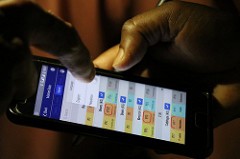
In partnership with the Bill and Melinda Gates Foundation and Omidyar Network, USAID launched RegTech for Regulators Accelerator (R2A) to catalyze innovation and create a market for technology-enabled tools that enhances the capacity of financial sector regulators and reduces the compliance burden of the private sector.
Partnering to Create an Inclusive Digital Economy
As part of the Agency’s partnership with India’s Ministry of Finance, USAID’s Digital Finance practice helped launch the India Catalyst Program. This program seeks to realize an inclusive digital economy for all in India, especially low-income populations, through affordable, scalable digital payments and tools.

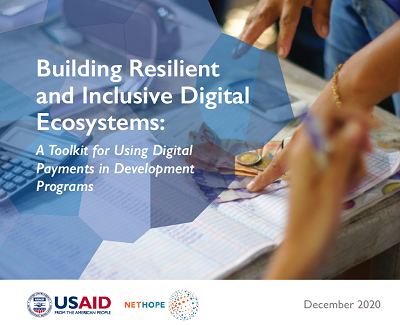
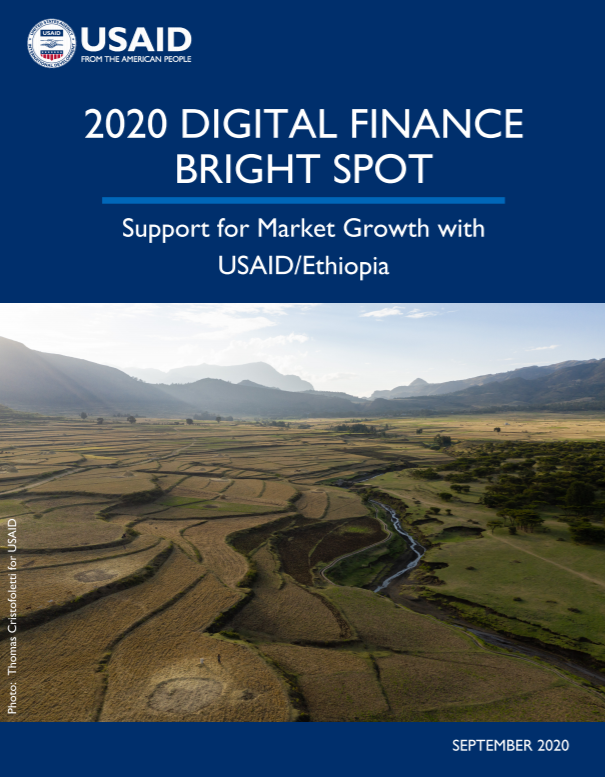
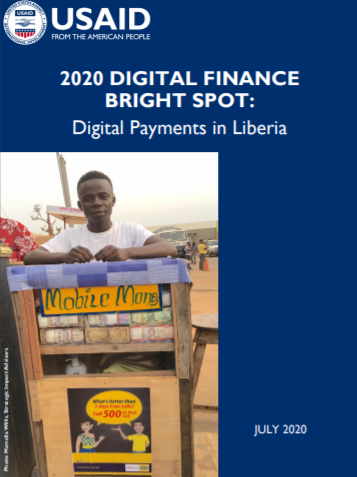
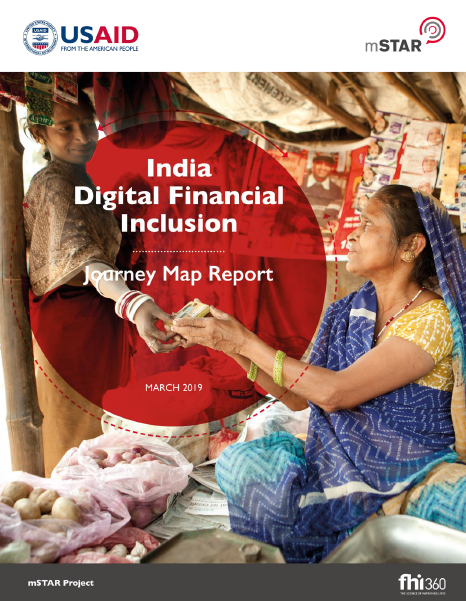
Comment
Make a general inquiry or suggest an improvement.